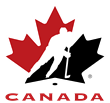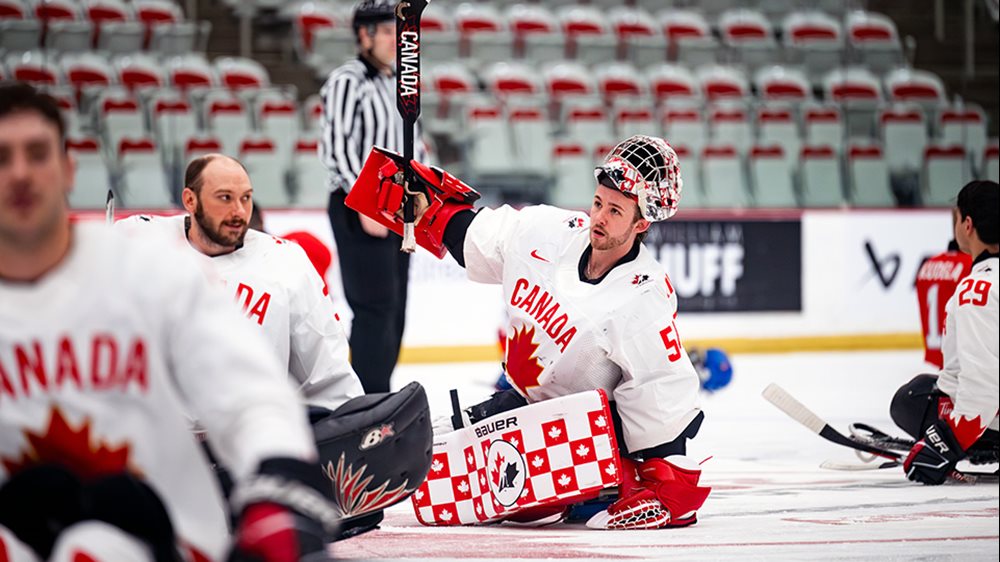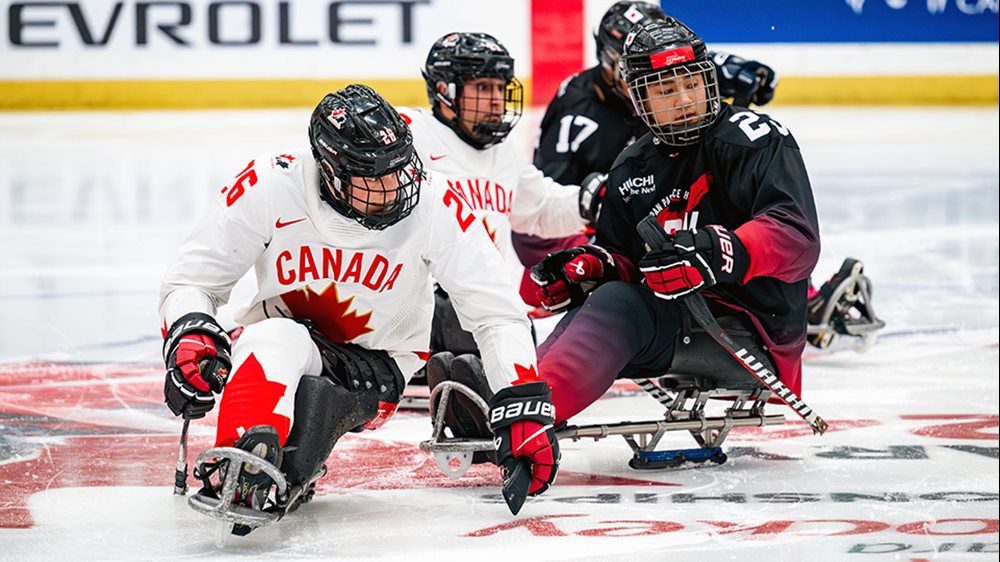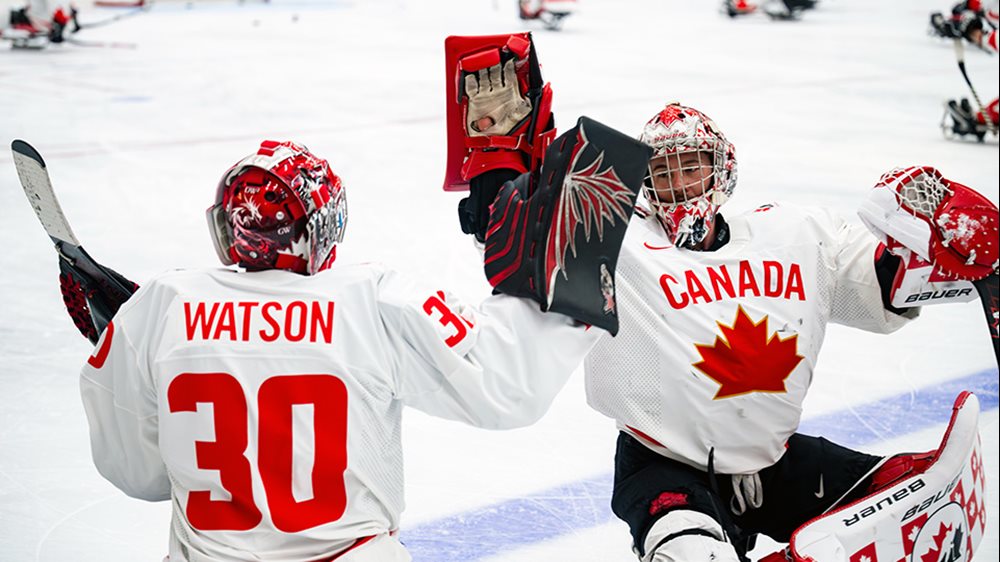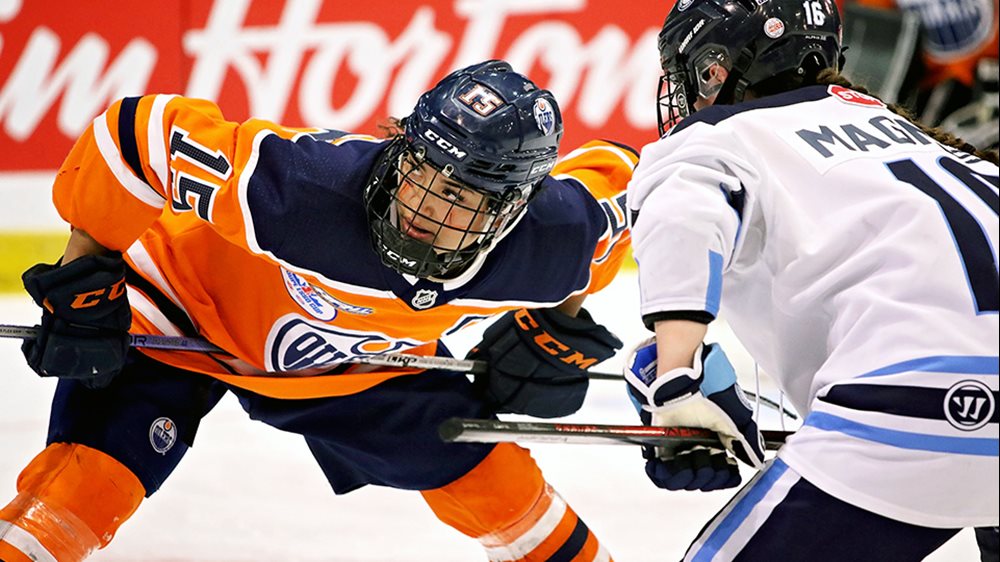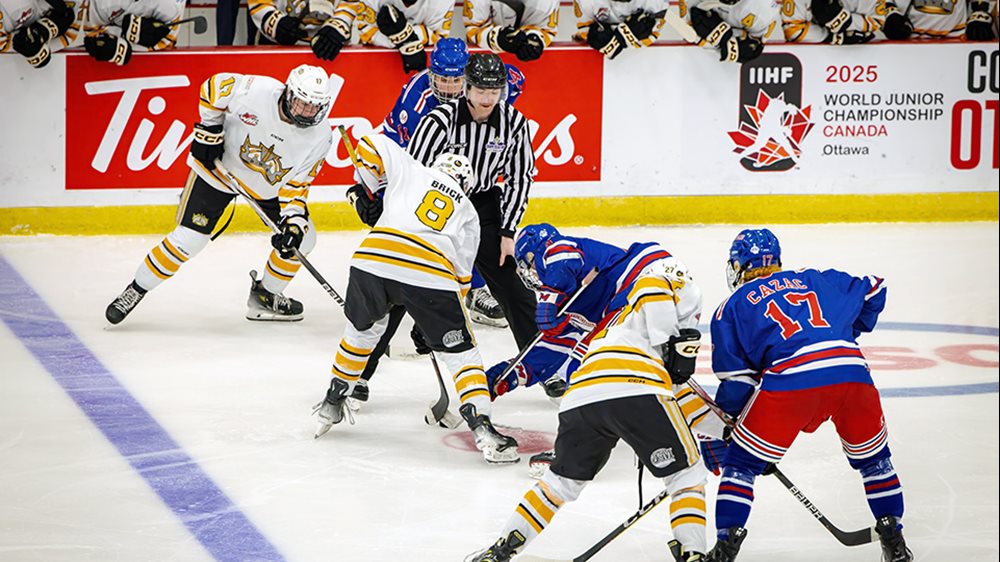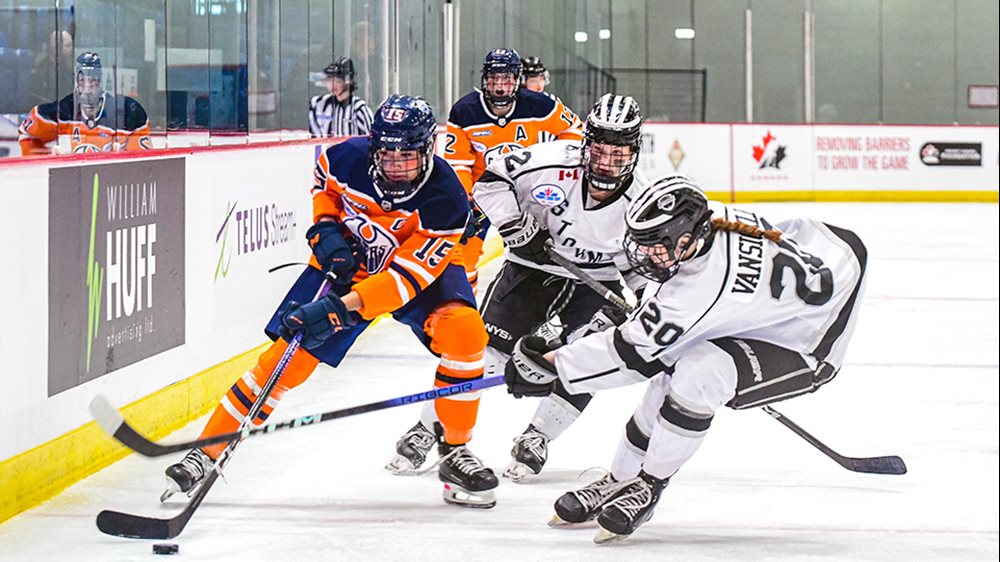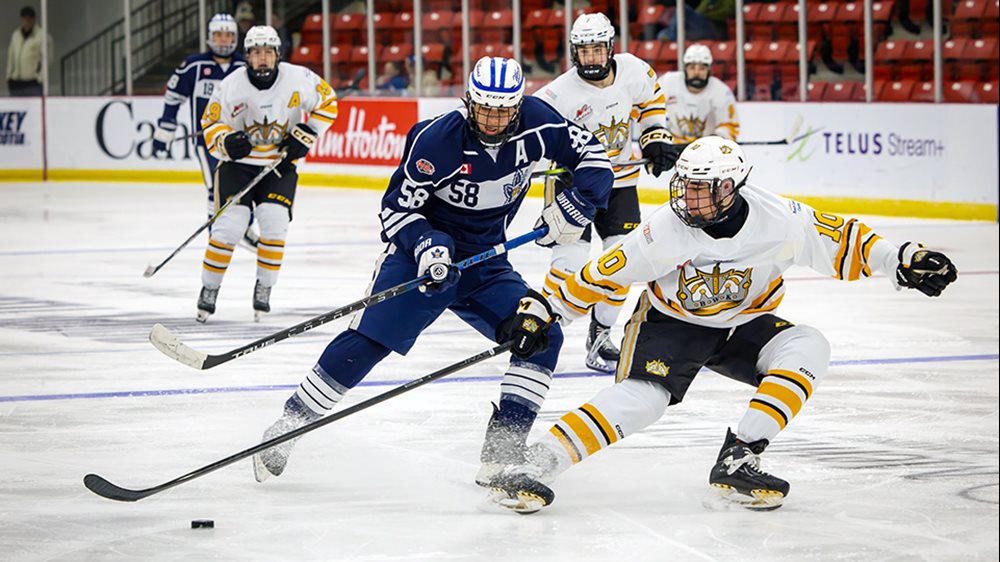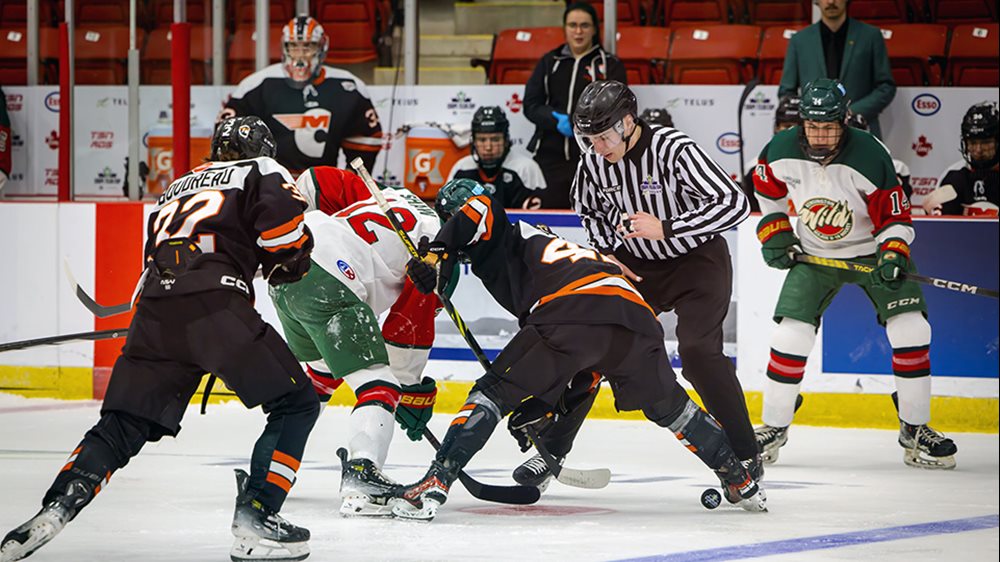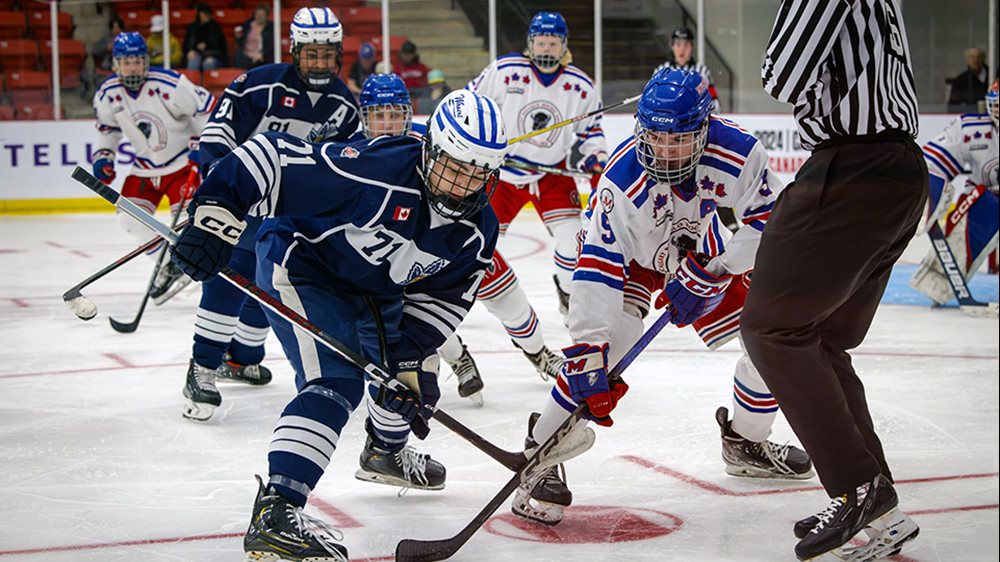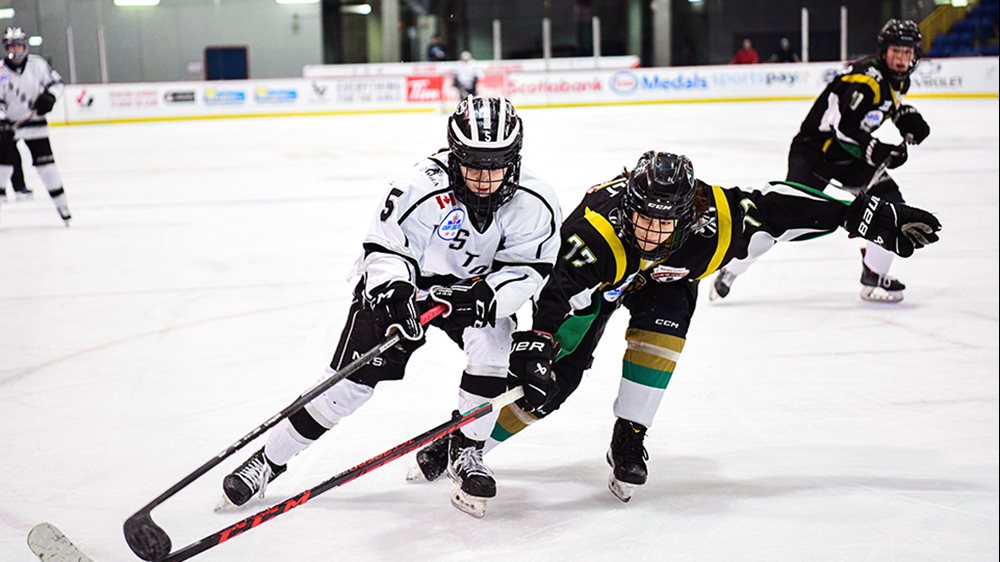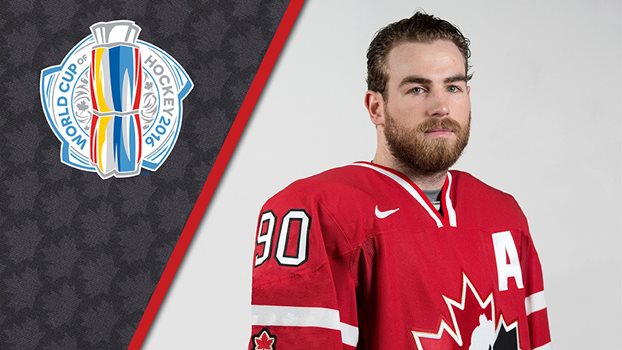
World Cup of Hockey Team Canada player update: O'Reilly added
Ryan O'Reilly replaces Tyler Seguin on Canadian roster
O’Reilly, 25, was one of only three players to win back-to-back IIHF World Championship gold with Canada in 2015 and 2016. In addition to wearing the Maple Leaf at two other IIHF World Championships (2012, 2013) and the 2009 IIHF World U18 Championship, O’Reilly has won gold with Canada at the 2008 Memorial of Ivan Hlinka tournament, and captained Ontario to a gold medal at the 2008 World Under-17 Hockey Challenge. O’Reilly will join Team Canada for Wednesday’s pre-tournament game against Russia in Pittsburgh.
“It’s never easy to lose a player to injury, let alone one of Tyler’s caliber, but once again, it speaks to the depth of talent in the country to be able to add a Ryan O’Reilly to our team,” said Doug Armstrong, general manager for Team Canada at the World Cup of Hockey. “Ryan just won gold at worlds alongside a number of our players in that dressing room, so we’re expecting him to be able to gel quickly as we wrap up our pre-tournament against Russia. On behalf of our coaching and management staff, and all of the players, we want to welcome Ryan and wish Tyler a speedy recovery.”
Seguin played in back-to-back pre-tournament games against Team USA, garnering one assist in Saturday’s 5-2 victory for Canada. In addition to winning the Stanley Cup in his rookie year with the Boston Bruins in 2011, Seguin, 24, was on the 2015 IIHF World Championship-winning team, and helped Canada’s National Men’s Team win the 2012 Spengler Cup in Davos, Switzerland. He also won a gold medal at the 2009 Memorial of Ivan Hlinka tournament, and was part of Ontario’s gold medal-winning team at the 2009 World Under-17 Hockey Challenge.
Team Canada meets Team Russia in its final pre-tournament game at 7:30 p.m. ET in Pittsburgh before heading to Toronto. Canada will face Team Czech Republic in its first World Cup of Hockey 2016 game on Saturday, Sept. 17 at 8 p.m. ET at the Air Canada Centre.
World Cup of Hockey 2016 is a joint effort of the National Hockey League and National Hockey League Players’ Association, in cooperation with the International Ice Hockey Federation. Eight teams — Team Canada, Team Czech Republic, Team Europe, Team Finland, Team North America, Team Russia, Team Sweden and Team USA — will compete in the two-week tournament, featuring more than 170 of the best players in the NHL. All tournament games will be played at Air Canada Centre in Toronto, home of the Toronto Maple Leafs.
For more information on World Cup of Hockey 2016, visit WCH2016.com.
For more information on Canada’s National Men’s Team, please visit HockeyCanada.ca, or follow along via social media on Facebook and Twitter, and at Twitter.com/HC_Men.
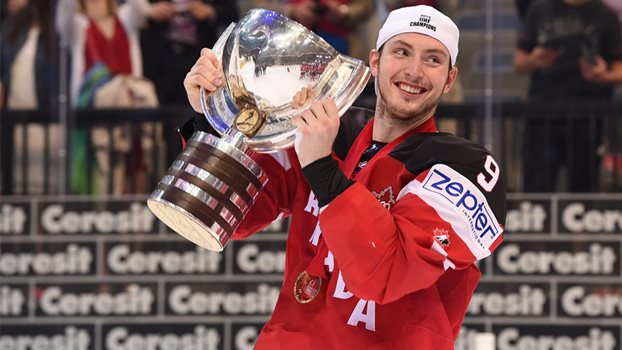
As good as gold
No stranger to international success, Matt Duchene wants another Team Canada triumph at the 2016 World Cup of Hockey
Near the end of the 1850s, thousands of prospectors made their way to the Southern Rocky Mountains, part of present-day Colorado, in search of a life-changing fortune during the Pike’s Peak Gold Rush.
More than 160 years later, Colorado remains home to a large collection of gold – although now it all belongs to Matt Duchene.
At every event the Colorado Avalanche forward has tried his luck internationally, he has brought home gold. It hasn’t always been on his first try (only most of the time), but eventually gold finds its way around his neck.
Ten times Duchene has worn the red and white of Team Canada – the 2016 World Cup of Hockey is his 11th appearance – and seven times the Haliburton, Ont., native has brought home the big prize.
So is success following Duchene, or does Duchene help create success?
“He’s been in the cross-hairs of the ‘go-to’ players since he was playing Midget and even before that,” says Doug Armstrong, Canada’s general manager at the World Cup. “He’s always been comfortable being who he is on the ice and that’s what’s made him a high draft choice and a top NHL player.”
By the time he was selected No. 3 by the Avalanche in the 2009 NHL Entry Draft, Duchene already had three gold medals to his name, all won in an eight-month span; with Ontario at the 2008 World Under-17 Hockey Challenge, as an under-ager at the 2008 IIHF World U18 Championship, and at the 2008 Memorial of Ivan Hlinka tournament.
Not a bad start to his international career.
He added a Spengler Cup title in 2012 during the NHL lockout, an Olympic gold medal in 2014, and back-to-back IIHF World Championship gold medals in 2015 and 2016 (after unsuccessful trips to worlds in 2010, 2011 and 2013).
While being one of the fastest and most talented players on the ice has always helped Duchene crack Team Canada rosters, his commitment and attitude hasn’t gone unnoticed; national team staff can see just how seriously he approaches the game.
But Duchene says it’s not a one-way street. While he puts in the work for Team Canada, Team Canada has put in the work to make his international experiences memorable.
“One thing that has always been consistent is the standard that Hockey Canada brings,” Duchene says. “In terms of players and coaches, the way things are taken care of for us is always first-class.
“To be around so many great people and to have had the chance to be along for the ride so many times just made it that much more exciting to have the international success I’ve been able to have.”
From a nationally-televised gold medal game at U17s to the brightest lights in all of sports in Sochi, Duchene has gotten accustomed to the pressures and expectations that come with wearing red and white.
It doesn’t hurt that he thrives on the big stage, and embraces his Team Canada opportunities.
“He’s a proven winner for Team Canada and someone I had the privilege to get to know a little bit over the years,” Armstrong says. “He’s someone who loves to wear the Canadian jersey and takes great pride in playing for his country.”
“Just being named is always an honour,” Duchene says. “The first day you walk in [the locker room] and see that logo in your stall, it’s extremely special and something I never take for granted.
“The cool part about Team Canada is that it’s incredibly hard to make the team, but once you’re on it you know that you’ve got a damn good chance at coming away with a championship.”
But it’s not just the on-ice talents that have helped Duchene become a Team Canada mainstay, although those don’t hurt. Armstrong is quick to point out his personality away from the rink.
While some players can be uncomfortable around team management, Duchene isn’t like that; he remains humble, approachable and easy to talk to.
“What we look for in players during this type of event is that the players’ personalities don’t change, and he’s one of those guys,” Armstrong says. “He’s someone who has a very good balance on and off the ice and he turns it up when necessary.”
Turning it up is something Duchene is confident he can do to help Canada defend its World Cup title and add one of the few missing pieces to his ever-growing trophy collection.
At the 2014 Olympics, Team Canada head coach Mike Babcock – who is back behind the bench at the World Cup – asked Duchene if he planned on sitting back and watching the game, or if he was going to play.
While it was said as a joke, Duchene got the message loud and clear.
“I was trying to avoid being the reason we lost instead of playing to be the reason we could win,” he remembers. “Once he said that to me, it helped to know that I could just go out there, be me, and play my game.”
This time around, Duchene is full of confidence and isn’t underestimating his abilities, and that can’t be good news for the rest of the hockey world.
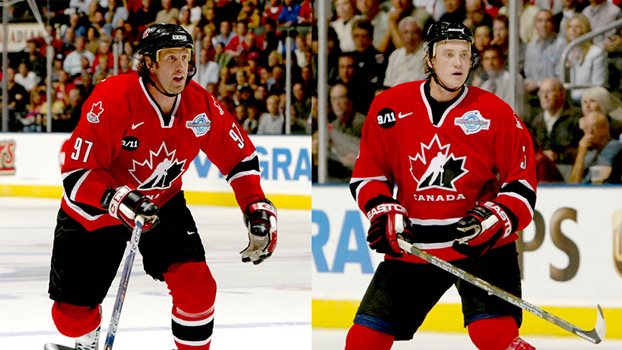
“All of a sudden we’re the old guys”
Twelve years have come and gone since the last World Cup of Hockey, but one thing (or two) remains the same for Canada: Jay Bouwmeester and Joe Thornton
Twelve years have passed since the last World Cup of Hockey.
Only six players from Canada’s tournament-winning roster remain active in the National Hockey League.
For two of them not much has changed.
The World Cup has returned to the hockey landscape, and Jay Bouwmeester and Joe Thornton have returned to Canada’s roster, ready to defend a title they helped win a dozen years ago.
“We were laughing the first day we got together because all of a sudden it was 12 years,” says Bouwmeester. “[Thornton’s] a few years older than I am – he’s the oldest and I’m the second oldest. Time flies. It’s pretty fun when you think about it – 12 years have gone by but it seems like it wasn’t that long ago. We were joking about that – all of a sudden we’re the old guys. That’s just the way it goes.”
“We’re the last standing guys,” says Thornton, laughing. “I was excited when Bouw got named. He was one of my good friends in 2004, so I was excited to get to experience it with him again. We’ve talked about it and we both have fond memories of back then.”
Back then Thornton was one of the up-and-coming young guns in the game, a 25-year-old top-line centre who within two years would win the Hart Memorial Trophy. In 2004, though, he embraced a different role. Thornton was employed on a checking line with Shane Doan and Kris Draper. Even in this new role, Thornton still thrived offensively, recording a goal and five assists, good for second in team scoring.
Bouwmeester was a late addition to this year’s roster, brought in as an injury replacement for Duncan Keith. It was the same story in 2004. Then, an injury forced Chris Pronger out and brought Bouwmeester in.
Although only 20 at the time – and the youngest member of the team – Bouwmeester came with years of international experience. By the time the World Cup rolled around he had played in three World Juniors and two IIHF World Championships.
“I started out as kind of an eighth defenceman [in 2004], then a couple of guys got hurt and I ended up getting a chance to play,” he says. “That’s exciting, when you get to play and you’re sort of a part of things.”
“I remember going to the Canada Cup in ’91 in Hamilton as a 12-year-old boy and I thought, if I could ever do this would be amazing,” says Thornton.
Plenty of highlights remain – “Obviously winning it was a pretty exciting time,” says Thornton – high among them meeting and competing with heroes like Mario Lemieux, Joe Sakic and Martin Brodeur.
Bouwmeester and Thornton are the elder statesmen now, if you will, but in a room full of leaders – 13 players presently wear letters with their NHL clubs – and those who’ve won in best-on-best tournaments themselves.
“Last time I was kind of more of a depth defenceman, probably much the same as this time,” says Bouwmeester. The approach has always been the same, he says: players come to camp and roles sort themselves out.
“This time around, it’s to be an energy guy, play on the power play a little bit, create some offence and get in there and use my big body. I think that’s what they expect from me,” says Thornton.
The game has gotten quicker and younger since 2004, but Thornton hasn’t lost a step. He was a point-per-game player last season, his 82 points (19 goals, 63 assists) tying him for fourth in the league in scoring. He racked up another 21 points over 24 games in a run to the Stanley Cup Final with his San Jose Sharks.
“It’s always a huge honour, especially me being 37; to play here with these guys is special, knowing I can be with these guys still, it’s pretty cool.”
What’s been the key to the longevity?
“I think health,” says Thornton. “I stay on top of my fitness. It’s just take care of your body and it’ll take care of you. I train really hard in the summertime, so I think that allows me to have success during the wintertime.”
Eliminating the red line opened the game up and put more emphasis on speed.
“If you watched those games [from 2004] and then the games in this tournament, there’d be a pretty noticeable difference,” says Bouwmeester, now 32. “But back then there were a lot of bigger guys that as a defenceman were harder to move and played a bit more physical game.”
Bouwmeester attributes his ongoing success to his skating.
“That’s been the key for me – just being able to still keep up. As you get older you learn a few tricks along the way.”
Twelve years ago an impending lockout injected excitement into the World Cup. This year it’s the inclusion of two non-national teams – Europe and North America – and the potential of the Canadians on the latter playing Canada at some point. (As a member of HC Davos during two NHL lockouts, Thornton twice played against Canada at the Spengler Cup. “It was definitely strange,” he says.)
But no matter the storyline at the start, Bouwmeester and Thornton just hope the narrative plays out the same.
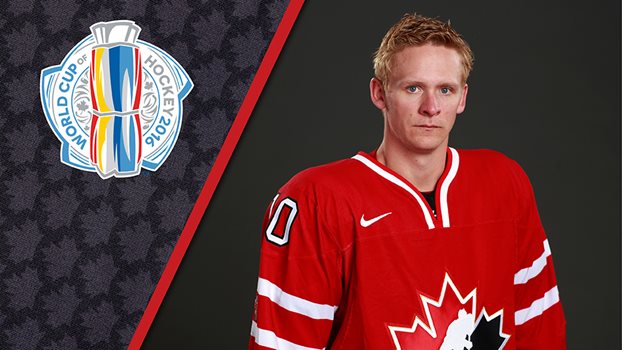
World Cup of Hockey - Team Canada player update
Corey Perry replaces Jeff Carter on Canadian roster
Perry, 31, most recently captained Canada to gold at the 2016 IIHF World Championship in St. Petersburg and Moscow, Russia, last May. The win earned Perry ascension to the Triple Gold Club as one of only eight active players who has won Olympic gold (2010, 2014), IIHF World Championship gold (2016), and a Stanley Cup championship (2007, Anaheim). Perry is only the second player to combine Triple Gold membership with a gold-medal win at the IIHF World Junior Championship (2005) and a Memorial Cup – joining Team Canada alumnus Scott Niedermayer.
“I know Jeff wanted to play and represent Canada, and his decision to step aside as they continue to monitor his injury speaks to his character and willingness to put Team Canada’s success above all else; we look forward to seeing him back on the ice when the NHL season begins,” said Doug Armstrong, general manager for Team Canada at the World Cup of Hockey. “We’re fortunate and excited to welcome Corey Perry to the team. He is coming off a gold-medal win with Team Canada at worlds, and his career accomplishments in the NHL and in international competition speak for themselves. He’ll be a great addition to the team.”
Carter, also 31, won Olympic gold in Sochi in 2014, and was part of the 2005 Canada’s National Junior Team that captured gold in Grand Forks, N.D., and the 2004 team that took home silver at the World Juniors in Finland. He’s also won gold at the 2003 IIHF World U18 Championship, and was part of the 2006 IIHF World Championship team that finished fourth. Carter scored the Stanley Cup-winning goal for the Los Angeles Kings in 2012 in Game 6 versus New Jersey.
Team Canada assembles in Ottawa to begin training camp on Sept. 5.
World Cup of Hockey 2016 is a joint effort of the National Hockey League and National Hockey League Players’ Association, in cooperation with the International Ice Hockey Federation. Eight teams - Team Canada, Team Czech Republic, Team Europe, Team Finland, Team North America, Team Russia, Team Sweden and Team USA - will compete in the two-week tournament, featuring more than 170 of the best players in the NHL. All tournament games will be played at Air Canada Centre in Toronto, home of the Toronto Maple Leafs.
For more information on World Cup of Hockey 2016, visit WCH2016.com.
For more information on Canada’s National Men’s Team, please visit HockeyCanada.ca, or follow along via social media on Facebook and Twitter, and at Twitter.com/HC_Men.
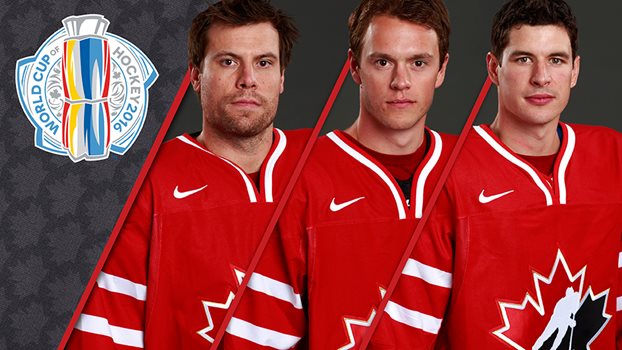
Sidney Crosby to captain Team Canada at World Cup of Hockey
Jonathan Toews, Shea Weber named alternate captains
“All 23 players on our roster are leaders on their respective club teams,” said Doug Armstrong, general manager for Team Canada at World Cup of Hockey 2016. “These are three leaders who have demonstrated their ability to win at all levels, and we are looking to them to bring that experience, and their relentless pursuit of excellence, as we come together as a team.” “Sid, Toews and Web are great men who have had unbelievable on-ice success,” said Mike Babcock, head coach of Team Canada at World Cup of Hockey 2016. “We look forward to them stepping up and leading our group as we work to achieve our ultimate goal at the World Cup.”
Crosby, 29, has won the Stanley Cup twice since becoming captain of the Pittsburgh Penguins prior to the 2007-08 season. In addition to his Olympic gold medal in 2014, Crosby captained Team Canada to gold at the 2015 IIHF World Championship, and was alternate captain of the golden 2010 Olympic team.
Toews, 28, was an alternate captain with Team Canada when he won his second IIHF World Junior Championship gold medal in 2007, on his way to two Olympic gold medals (2010, 2014) and three Stanley Cup championships since first donning the ‘C’ for the Chicago Blackhawks in 2008-09.
The 31-year-old Weber has won gold for Canada at the IIHF World Junior Championship and IIHF World Championship, and at two Olympic Winter Games. He tallied six seasons as captain of the Nashville Predators, and will wear the ‘A’ when he hits the ice with the Montreal Canadiens this season.
Team Canada assembles in Ottawa to begin training camp on Sept. 5.
World Cup of Hockey 2016 is a joint effort of the National Hockey League and National Hockey League Players’ Association, in cooperation with the International Ice Hockey Federation. Eight teams — Team Canada, Team Czech Republic, Team Europe, Team Finland, Team North America, Team Russia, Team Sweden and Team USA — will compete in the two-week tournament, featuring more than 170 of the best players in the NHL. All tournament games will be played at Air Canada Centre in Toronto, home of the Toronto Maple Leafs.
For more information on World Cup of Hockey 2016, visit WCH2016.com.
For more information on Canada’s National Men’s Team, please visit HockeyCanada.ca, or follow along via social media on Facebook and Twitter, and at Twitter.com/HC_Men.
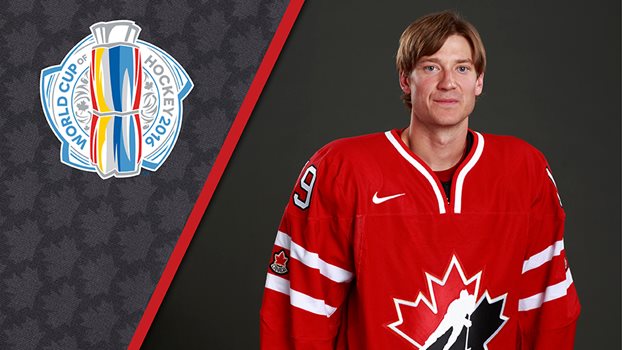
World Cup of Hockey Team Canada player update: Bouwmeester added
Jay Bouwmeester replaces Duncan Keith on Canadian roster
Bouwmeester, 32, was on the 2004 World Cup-winning squad, and has also won gold for Canada at the 2014 Olympic Winter Games and the 2003 and 2004 IIHF World Championships. Bouwmeester also played at three IIHF World Junior Championships (2000, 2001, 2002), bringing home two bronze medals and one silver.
“First and foremost, we want to wish Duncan the best in his continued rehabilitation, and welcome Jay to the team,” said Doug Armstrong, general manager for Team Canada. “Our management team and coaching staff felt it was critical to ensure continuity between the number of left- and right-handed defencemen on our roster, and Jay’s experience with what it takes to be successful in these short tournaments can’t be undervalued.”
A three-time Stanley Cup champion, Keith has won Olympic gold for Canada in both 2010 and 2014, and earned silver at the 2008 IIHF World Championship.
Team Canada assembles in Ottawa to begin training camp on Sept. 5.
The World Cup of Hockey, hosted by the NHL and NHLPA, runs Sept. 17 through Oct. 1, exclusively at the Air Canada Centre in Toronto and features players representing over 15 countries. Eight teams – Team Canada, Team Czech Republic, Team Europe, Team Finland, Team North America, Team Russia, Team Sweden, and Team USA – will compete in the championship.
For more information on the 2016 World Cup of Hockey, visit WCH2016.com.
For more information on Canada’s National Men’s Team, please visit HockeyCanada.ca, or follow along via social media on Facebook and Twitter, and at Twitter.com/HC_Men.
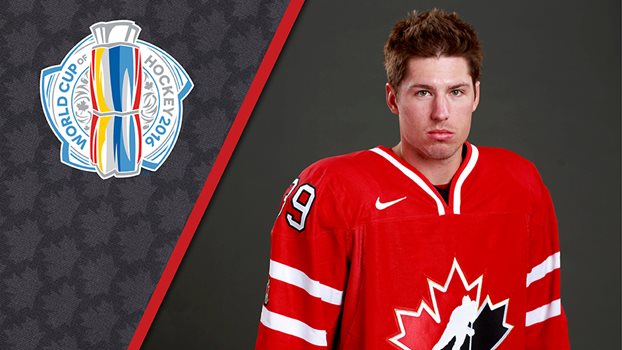
World Cup of Hockey Team Canada player update: Couture added
Logan Couture replaces Jamie Benn on Canadian roster
CALGARY, Alta. – Hockey Canada and its World Cup of Hockey management group have named forward Logan Couture (London, Ont./San Jose, NHL) to Team Canada, as a replacement for Jamie Benn (Victoria, B.C./Dallas, NHL), who is unable to participate in next month’s tournament.
Couture, 27, led the NHL in playoff assists and points last season, and last donned the Maple Leaf at the 2007 IIHF World U18 Championship.
“We are excited to add Logan to Team Canada. He has developed into a top player in the NHL, and his versatility will benefit our group of forwards. In making this decision the management group consulted with our coaching staff and determined that Logan was the best fit to help fill the role that Jamie was projected to play on Team Canada,” said Doug Armstrong, general manager for Team Canada. “We want to thank Jamie for his dedication to an extensive rehab program in an attempt to play for Canada. Unfortunately, Jamie will not be available and we wish him a speedy recovery.”
Benn was among the first 16 players selected to Canada’s World Cup of Hockey roster in March 2016, and has been recovering from surgery to repair a core muscle injury, the Stars announced in July. Benn has previously won gold for Canada at the 2009 IIHF World Junior Championship, and 2014 Olympic Winter Games.
Team Canada assembles in Ottawa to begin training camp on Sept. 5.
The World Cup of Hockey, hosted by the NHL and NHLPA, runs Sept. 17 through Oct. 1, exclusively at the Air Canada Centre in Toronto and features players representing more than 15 countries. Eight teams – Team Canada, Team Czech Republic, Team Europe, Team Finland, Team North America, Team Russia, Team Sweden, and Team USA – will compete in the championship.
For more information on the 2016 World Cup of Hockey, visit WCH2016.com.
For more information on Canada’s National Men’s Team, please visit HockeyCanada.ca, or follow along via social media on Facebook and Twitter, and at Twitter.com/HC_Men.
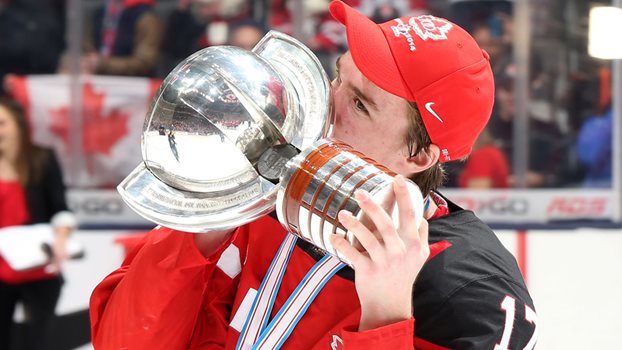
Youth will be served
Team North America brings IIHF World Junior Championship success to World Cup of Hockey
NOTE: This story was originally published March 3 with the announcement of the first 16 players. It has been updated to reflect the full Team North America roster.
The Team Canada roster named for the 2016 World Cup of Hockey has no shortage of star power, and no shortage of IIHF World Junior Championship hardware – 14 of the 16 World Juniors alumni are gold medallists (17 gold medals in all), and the roster includes three MVPs and seven all-star team selections.
But the 23 players selected for Team North America aren’t without their own impressive international accomplishments; 20 played at the World Juniors, combining for seven gold medals, one silver and three bronze, an MVP selection, and six all-star team berths.
Here’s a closer look at the under-24 stand-outs headed to the World Cup:
SEAN COUTURIER 2011 WJC – 7GP 2G 1A 3P (silver medal)
A highly-touted scorer during his junior days – he was the QMJHL scoring champion in 2009-10 – Couturier played more of a defensive role at the World Juniors in Buffalo, contributing three points in seven games to help Canada to a silver medal. The Bathurst, N.B., native finished +6, second among Canadian forwards, with zero penalty minutes, playing minutes in every situation for head coach Dave Cameron.
JONATHAN DROUIN 2013 WJC – 6GP 2G 2A 4P 2014 WJC – 7GP 3G 6A 9P
The second-youngest player on the roster, Drouin recorded points in three of four preliminary round games at the 2013 World Juniors, including a goal and an assist in the opener versus Germany. He more than doubled his point total the following year and once again had his best game in the opener against the Germans, setting up Anthony Mantha for all three of his hat-trick goals.
AARON EKBLAD 2014 WJC – 7GP 1G 1A 2P
One of two Calder Memorial Trophy winners on the North America roster (along with MacKinnon), Ekblad helped anchor the Canadian blue-line in Malmö; he scored a shorthanded goal in a 5-4 shootout loss to the Czech Republic and recorded an assist two days later against Slovakia. He saved his best for last, picking up Player of the Game honours in Canada’s 2-1 bronze medal game loss to Russia.
NATHAN MACKINNON 2013 WJC – 6GP 0G 1A 1P
The youngest player on the Team Canada roster, MacKinnon played a bottom-six role in Ufa, chipping in just a single assist in six games as the Canadians’ consecutive medal streak at the World Juniors ended at 14. The 17-year-old – six months from being the first-overall pick in the 2013 NHL Entry Draft – was under the microscope in Russia, displaying his rare combination of speed and skill.
CONNOR MCDAVID 2014 WJC – 7GP 1G 3A 4P 2015 WJC – 7GP 3G 8A 11P (gold medal/All-Star Team)
After scoring once and adding three assists in seven games at the 2014 World Juniors, McDavid turned the 2015 tournament into his personal playground on home ice; he shook off the rust of a 44-day lay-off due to a broken hand, co-leading the tournament in scoring (along with teammates Nic Petan and Sam Reinhart), earning a place on the media all-star team and helping Canada end a seven-year gold medal drought.
RYAN MURRAY 2012 WJC – 6GP 0G 3A 3P (bronze medal)
Murray was the youngest member of a solid defensive corps in Calgary and Edmonton that – outside of a wild 6-5 semifinal loss to Russia – allowed just five goals in five games en route to bronze, Canada’s 14th consecutive medal at the World Juniors. The White City, Sask., native had three assists in three games, adding to his international résumé before Columbus took him second overall in the NHL draft the following June.
RYAN NUGENT-HOPKINS 2013 WJC – 6GP 4G 11A 15P (Best Forward/All-Star Team)
Joining Team Canada with the NHL in the midst of a lockout, Nugent-Hopkins wore the ‘C’ at the 2013 World Juniors after playing a full season in the NHL and at the 2012 IIHF World Championship. The Burnaby, B.C., native didn’t lead Canada to a medal, but led the tournament in assists and points on his way to the Best Forward honour and an all-star team selection.
MORGAN RIELLY 2013 WJC – 6GP 1G 2A 3P
Rielly will have a front-row seat to the 2017 World Juniors in Toronto, four years after helping Canada to within just a single goal of a 15th straight medal. The blue-liner had three points in six games, all coming in one game – one period, in fact; he picked up a goal and two assists in a span of 13 minutes of the second period to help Canada erase a two-goal deficit against Slovakia.
MARK SCHEIFELE 2012 WJC – 6GP 3G 3A 6P (bronze medal) 2013 WJC – 6GP 5G 3A 8P
Scheifele averaged at least a point per game at both of his appearances at the World Juniors. He had six points in six games at the 2012 tournament, including a goal and a helper in the bronze medal game to ensure Canada won a medal on home ice, and led the Canadians in goal scoring one year later with five in six games, two of which came in a win over Germany.
JACK EICHEL 2014 WJC – 5GP 1G 4A 5P 2015 WJC – 5GP 1G 3A 4P
JOHNNY GAUDREAU 2013 WJC – 7GP 7G 2A 9P (gold medal/All-Star Team)
JOHN GIBSON 2012 WJC – 1GP 0-1-0 4.00GAA .852SV% 0SO 2013 WJC – 7GP 5-2-0 1.36GAA .955SV% 1SO (gold medal/MVP/Best Goaltender/All-Star Team)
SHAYNE GOSTISBEHERE 2013 WJC – 6GP 1G 1A 2P (gold medal)
SETH JONES 2013 WJC – 7GP 1G 6A 7P (gold medal)
DYLAN LARKIN 2015 WJC – 5GP 5G 2A 7P
AUSTON MATTHEWS 2015 WJC – 5GP 1G 2A 3P 2016 WJC – 7GP 7G 4A 11P (bronze medal/All-Star Team)
J.T. MILLER 2012 WJC – 6GP 2G 2A 4P 2013 WJC – 7GP 2G 7A 9P (gold medal)
BRANDON SAAD 2012 WJC – 6GP 1G 5A 6P
VINCENT TROCHECK 2013 WJC – 7GP 3G 3A 6P (gold medal)
JACOB TROUBA 2012 WJC – 6GP 0G 2A 2P 2013 WJC – 7GP 4G 5A 9P (gold medal/Best Defenceman/All-Star Team)
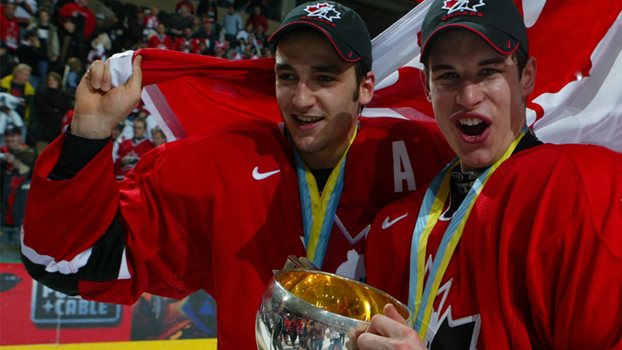
The golden group
16 IIHF World Junior Championship gold medallists anchor Canada’s roster for World Cup of Hockey
NOTE: This story was originally published March 2 with the announcement of the first 16 players. It has been updated to reflect the full Team Canada roster.
The players named to Team Canada are a who’s-who of Canadian hockey; they have combined for 21 Olympic gold medals and 16 more at the IIHF World Championship, and all but one – goaltender Corey Crawford – has previous international experience on their résumé.
Included in their list of successes is the IIHF World Junior Championship. Of the group, 16 are World Juniors alumni, and 14 of them have a gold medal to their name; Brad Marchand, John Tavares and Jonathan Toews lead the way with two apiece.
Here’s a look at how the World Cup-bound Canadians fared at the World Juniors:
PATRICE BERGERON 2005 WJC – 6GP 5G 8A 13P (gold medal/MVP/All-Star Team)
One year after making his NHL debut, Bergeron joined Team Canada at the 2005 World Juniors because of the NHL lockout. His professional experience paid off; he combined with Sidney Crosby and Corey Perry to form Canada’s most dangerous line, and finished with a tournament-leading 13 points to help Canada end an eight-year gold medal drought, earning MVP honours and a spot on the media all-star team in the process.
JAY BOUWMEESTER 2000 WJC – 7GP 0G 0A 0P (bronze medal) 2001 WJC – 7GP 0G 2A 2P (bronze medal) 2002 WJC – 7GP 0G 2A 2P (silver medal/All-Star Team)
In 2000, Bouwmeester became the youngest player to ever represent Canada at the IIHF World Junior Championship (16 years, 3 months), a distinction he still holds. The defenceman is one of only seven players to play for Canada’s National Junior Team at three World Juniors and is tied with three others for most games (21). A steady presence on the blue-line, Bouwmeester recorded a tournament-best +11 in 2002 and was named to the Media All-Star Team.
BRENT BURNS 2004 WJC – 6GP 0G 6A 6P (silver medal)Burns has twice been named Best Defenceman at the IIHF World Championship, in 2008 and 2015. But in 2004, he set the physical tone while making his international debut as a forward on Canada’s National Junior Team. On loan from the Minnesota Wild, he registered six assists – including two each in wins over Switzerland and the Czech Republic – in six games playing on a line with Jeff Carter and Ryan Getzlaf.
SIDNEY CROSBY 2004 WJC – 6GP 2G 3A 5P (silver medal) 2005 WJC – 6GP 6G 3A 9P (gold medal)
The youngest player to ever score for Canada at the World Juniors when he tallied against Switzerland in 2004, Crosby made his biggest impact one year later; the future two-time Olympic gold medallist trailed only Jeff Carter in goals in Grand Forks, tied Éric Dazé’s all-time Canadian record for power-play goals in one World Juniors (five), and helped Canada end eight years of gold medal heartache.
DREW DOUGHTY 2008 WJC – 7GP 0G 4A 4P (gold medal/Best Defenceman/All-Star Team)
Doughty not only took home a gold medal from the Czech Republic at the 2008 World Juniors, but a pair of individual honours as well. While he registered only four points in seven games – two assists against both Slovakia and Finland – he was recognized for his ability to make life difficult for opposing offences; the blue-liner was named Best Defenceman by the IIHF Directorate, and to the media all-star team.
RYAN GETZLAF 2004 WJC – 6GP 3G 3A 6P (silver medal) 2005 WJC – 6GP 3G 9A 12P (gold medal)
After settling for silver at the 2004 World Juniors in Helsinki, where he averaged a point a game, Getzlaf was back in red and white one year later, joining what many believe is the best Canadian team ever. The Regina, Sask., native was an offensive force, finishing second in Team Canada and tournament scoring with 12 points, and scoring just 51 seconds into the gold medal game to help the Canadians to a gold medal.
CLAUDE GIROUX 2008 WJC – 7GP 2G 4A 6P (gold medal)
Giroux tied for second in team scoring in Pardubice and Liberec, with his best offensive outing – a goal and two assists – coming in a loss to Sweden in the preliminary round. He had an assist in wins over Denmark on New Year’s Eve and the United States in the semifinals. His most important point, however, came in the gold medal game; his goal give Canada a 2-0 lead in a game it eventually won 3-2 in overtime.
BRAD MARCHAND 2007 WJC – 6GP 2G 0A 2P (gold medal) 2008 WJC – 7GP 4G 2A 6P (gold medal)
Marchand’s name goes hand-in-hand with IIHF World Junior Championship success, as he won back-to-back gold medals. He wasn’t much different in the red and white of Team Canada as he is today with the Boston Bruins – a feisty winger who played bigger than his size and loved to play physical. Marchand scored twice in 2007, including a goal in the gold medal game, and added six points in seven games one year later.
COREY PERRY 2005 WJC – 6GP 2G 5A 7P (gold medal)
Perry lined up alongside Patrice Bergeron and Sidney Crosby on what coaches initially deployed as their shutdown line. He registered at least one point in five of six games, including a two-goal effort in an 8-1 win over Finland. The gold medal is part of an impressive collection of hardware; Perry joins Team Canada alumnus Scott Niedermayer as the only players to earn membership to the IIHF Triple Gold Club (Olympic gold, IIHF World Championship gold, Stanley Cup), and win World Juniors gold and the Memorial Cup (with London in 2005).
ALEX PIETRANGELO 2009 WJC – 6GP 1G 2A 3P (gold medal) 2010 WJC – 6GP 3G 9A 12P (silver medal/Best Defenceman/All-Star Team)Pietrangelo was golden in Ottawa at the 2009 World Juniors, but it was the 2010 tournament where he really started to turn heads. The King City, Ont., native dominated from the blue-line, tying Bryan McCabe’s Canadian record for points by a defenceman in one year (12). Pietrangelo recorded at least a point in all six games, deservedly earning Top Defenceman honours and a spot on the media all-star team.
CAREY PRICE 2007 WJC – 6GP 6-0-0 1.14GAA .961SV% 2SO (gold medal/MVP/Best Goaltender/All-Star Team)
The last goaltender to play every second of every game for Team Canada at the World Juniors, Price backstopped the Canadians to a third-consecutive gold medal in 2007; the 2015 Hart Trophy and Vezina Trophy winner opened the tournament with a shutout and never slowed down, leading the WJC in goals-against average, save percentage, and shutouts, and turning away the U.S. in a semifinal shootout thriller.
STEVEN STAMKOS 2008 WJC – 7GP 1G 5A 6P (gold medal)
The future first-overall pick finally won a medal with Team Canada in his third go-round after finishing off the podium at the summer U18 tournament and U18 worlds. The 17-year-old had three assists in a tournament-opening win over the host Czechs, and chipped in a goal and two assists the rest of the way to finish second in team scoring as the Canadians won a fourth gold in a row with an overtime win over Sweden.
JOHN TAVARES 2008 WJC – 7GP 4G 1A 6P (gold medal) 2009 WJC – 6GP 8G 7A 15P (gold medal/MVP/Best Forward/All-Star Team)
Tavares had four goals in seven games as a 17-year-old to help Canada win gold at the 2008 World Juniors, but that was nothing compared to his 2009 performance as the Canadians made it five in a row in Ottawa. He won MVP and Best Forward honours after a 15-point effort, earned a spot on the media all-star team, and sits tied with Jeff Carter and Eric Lindros for second-most goals in Canadian WJC history (12).
JOE THORNTON 1997 WJC – 7GP 2G 2A 4P (gold medal)
Thornton was 17 and the youngest member of Canada’s National Junior Team in 1997. Five months before going first overall in the 1997 NHL Entry Draft, he had a pair of goals and assists as the team went undefeated in Geneva, Switzerland, capped off with a 2-0 shutout of the U.S. in the gold medal game for Canada’s fifth-straight World Juniors title. The head coach of that 1997 team? World Cup bench boss Mike Babcock.
JONATHAN TOEWS 2006 WJC – 6GP 0G 2A 2P (gold medal) 2007 WJC – 6GP 4G 3A 7P (gold medal)
The Winnipeg, Man., native had a modest two assists at the 2006 World Juniors as part of the best defensive team ever, but he broke out one year later. Toews led Canada in scoring in Sweden with seven points in six games en route to gold, and that doesn’t include his biggest contribution – three goals in three attempts in a semifinal shootout win over the U.S. that booked his place in Canadian hockey history.
SHEA WEBER 2005 WJC – 6GP 0G 0A 0P (gold medal)
Weber did not record a point in six games as Canada ended its eight-year gold medal drought in Grand Forks – the only Canadian to play more than one game and not find the scoresheet – but that doesn’t mean he didn’t play a major role; making his international debut, the blue-liner joined Dion Phaneuf on Canada’s shutdown defensive pairing, finishing tied for third in plus/minus at +10 – tops among all defencemen.
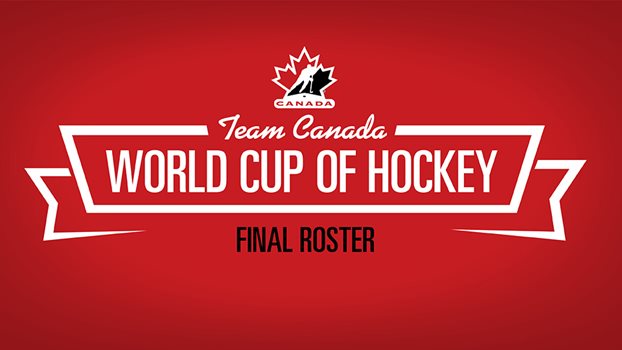
Hockey Canada finalizes 2016 World Cup of Hockey roster
Team Canada welcomes three D, four forwards to round out 23-player roster
“The decisions weren’t easy, and with the depth of player talent we have in Canada, we knew it would be a difficult process to finalize our roster – but it’s what we signed up for, and we feel we’ve been able to put together the right balance to create a winning team,” said Armstrong. “Whether we’re talking the Stanley Cup, World Junior gold, World Championship gold, or even the last World Cup – these players have been there and know what it takes to be successful. And they’ll be ready to make the nation proud come September.”
Three defencemen – Brent Burns (Barrie, Ont./San Jose, NHL), Jake Muzzin (Woodstock, Ont./Los Angeles, NHL), and Alex Pietrangelo (King City, Ont./St. Louis, NHL) join the four previously-named blueliners (Doughty, Keith, Vlasic, and Weber).
Rounding out the red-and-white’s offense are Matt Duchene (Haliburton, Ont./Colorado, NHL) and Brad Marchand (Hammonds Plains, N.S./Boston, NHL) who added to Canada’s gold-medal haul last Sunday at the IIHF World Championship, as well as Claude Giroux (Hearst, Ont./Philadelphia, NHL) and Joe Thornton (St. Thomas, Ont./San Jose, NHL).
“This is one of the two best things I achieved in my career – the other is making the Olympic team, which felt just as good as winning Olympic gold,” said Duchene, who is looking forward to playing at the World Cup in Toronto, just under three hours south of his hometown of Haliburton. “I have so much respect for Canadian players; to be selected from among all of that talent is a feeling I just can’t really describe. It’s a big reason why you play – to represent your country is an absolute honour, and so unbelievable.”
Of Team Canada’s 23 players, 14 have combined to earn 22 Olympic gold medals, while 18 have won gold at World Juniors. Thornton was a member of the last Team Canada to play – and win – the World Cup of Hockey in 2004.
“Anytime you can play for Canada it’s a dream come true; the pride, the honour, it’s extremely exciting. Being named to the World Cup team is an incredible feeling – it’s tough to put into words,” said Marchand, who like Duchene is fresh off a gold-medal win at the World Championship and is no stranger to coming together with new teammates and a new coaching staff for a short-term, high-stakes competition like the World Cup. “[The key to success] is you have to believe and be confident in your abilities, and be willing to do what it takes to win and make the sacrifices. [The World Cup] brings together the top players in the world – and that’s what makes them the top players; they do what they need to win.”
Ottawa to host Team Canada training camp, pre-tournament game
Ottawa and Canadian Tire Centre will welcome Team Canada’s World Cup of Hockey training camp and host a pre-tournament game against Team USA this September.
From Sept. 4-11, Canada’s best players will descend on Ottawa to prepare for the 2016 World Cup of Hockey. The training camp will culminate in a pre-tournament game between Team Canada and Team USA on Sept. 10 at Canadian Tire Centre at 7 p.m. ET.
Tickets are now available on a priority-access basis to Ottawa Senators’ season-seat members until June 8.
Tickets will be available to the general public starting on June 9, and range from $35 to $175, with proceeds going back to supporting the development of hockey across the country. In addition to the pre-tournament game and training camp, Hockey Canada has announced it will host a series of hockey development activities in the National Capital Region to coincide with the timing of the Sept. 10 match-up. Additional details on those activities and on how fans can purchase tickets will be released at a future date.
In June 2015, Hockey Canada announced the Team Canada management group for the World Cup of Hockey comprised of Armstrong (Sarnia, Ont./St. Louis, NHL) as general manager, with assistance from Marc Bergevin (Montreal/Montreal, NHL), Rob Blake (Simcoe, Ont./Los Angeles, NHL), Ken Holland (Vernon, B.C./Detroit, NHL), Bob Murray (Kingston, Ont./Anaheim, NHL), and Scott Salmond (Creston, B.C.), Hockey Canada’s vice-president of hockey operations and national teams. Tom Renney (Cranbrook, B.C.), as president and CEO of Hockey Canada, and Scott Smith (Bathurst, N.B.), the organization’s chief operating officer, round out Team Canada’s World Cup of Hockey management group.
The coaching staff was announced in November 2015, and is comprised of head coach Mike Babcock (Saskatoon, Sask./Toronto, NHL) and assistant coaches Claude Julien (Orleans, Ont./Boston, NHL), Barry Trotz (Dauphin, Man./Washington, NHL),Joel Quenneville (Windsor, Ont./Chicago, NHL), Bill Peters (Three Hills, Alta./Carolina, NHL), and Hockey Canada’s Misha Donskov (London, Ont.), as well as Andrew Brewer (Fredericton, N.B./Toronto, NHL) as video coach.
The World Cup of Hockey returns in September 2016 in Toronto, where eight teams, comprised of the world's best hockey players, will compete for a best-on-best international hockey championship. The World Cup of Hockey is a joint effort of the NHLPA and the NHL, in cooperation with the International Ice Hockey Federation (IIHF). It is expected that more than 150 of the best players in the NHL will participate in this tournament.
For more information on the 2016 World Cup of Hockey, visit www.wch2016.com.
For more information on Canada’s National Men’s Team, please visit HockeyCanada.ca, or follow along via social media on Facebook and Twitter, and at Twitter.com/HC_Men.
For more information: |
- <
- >
